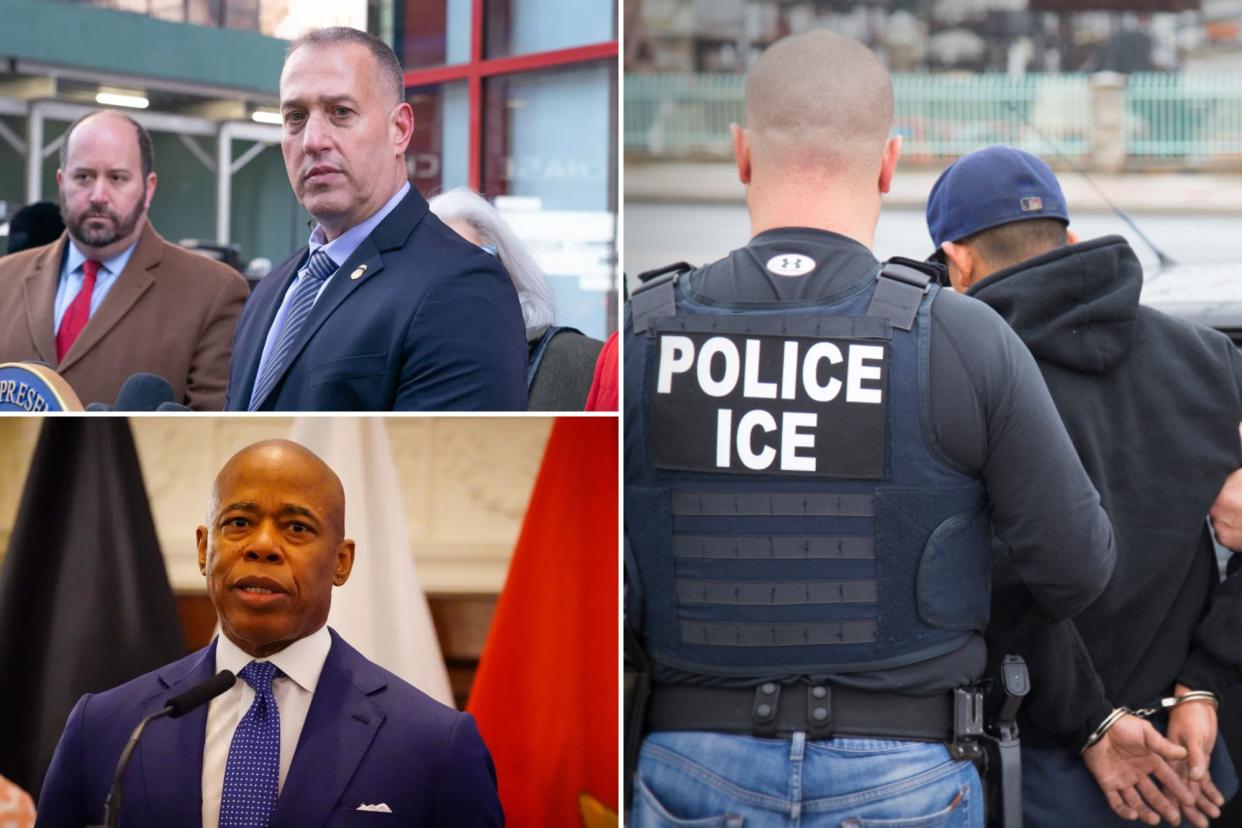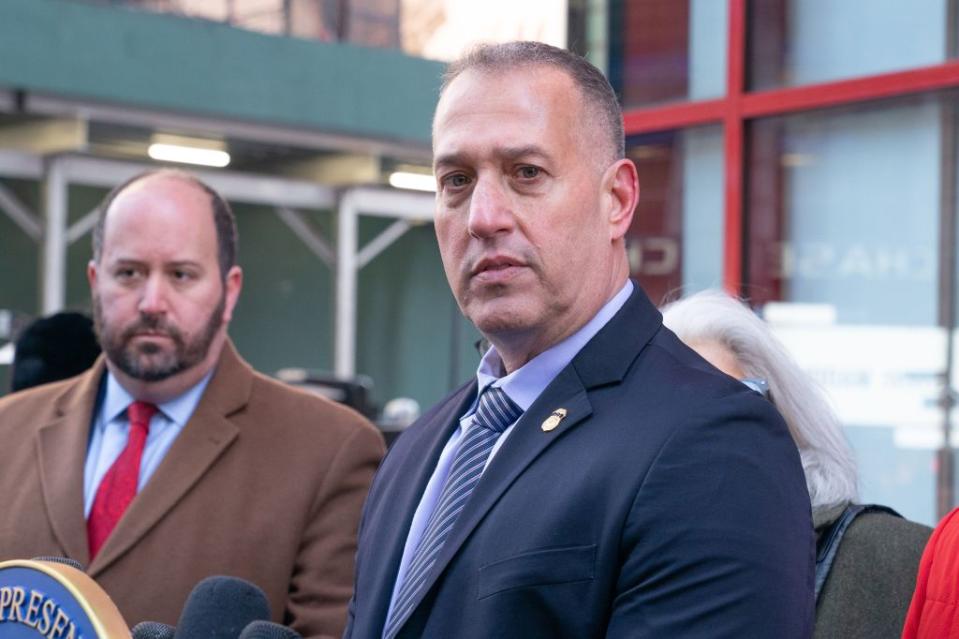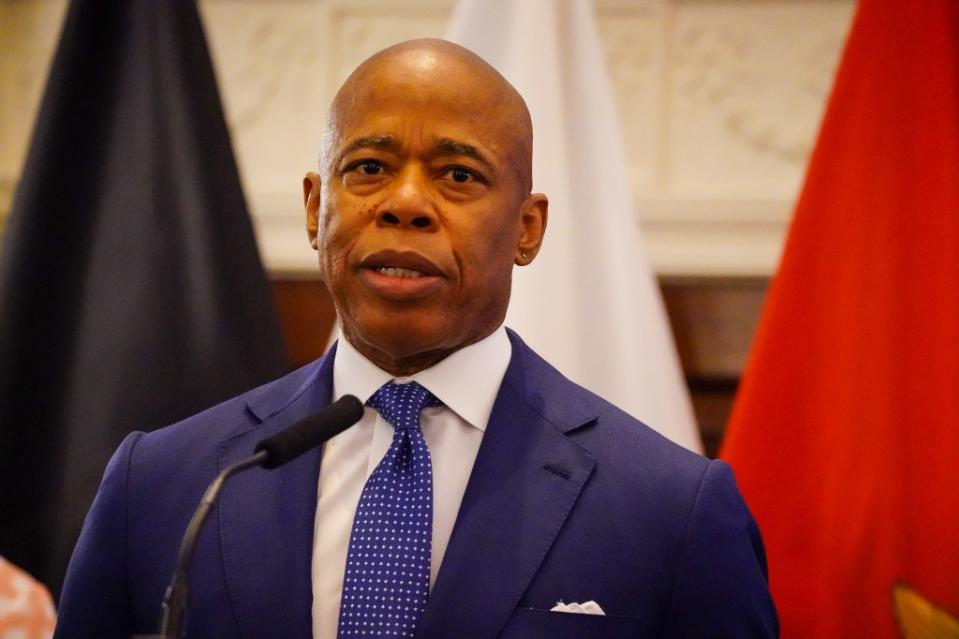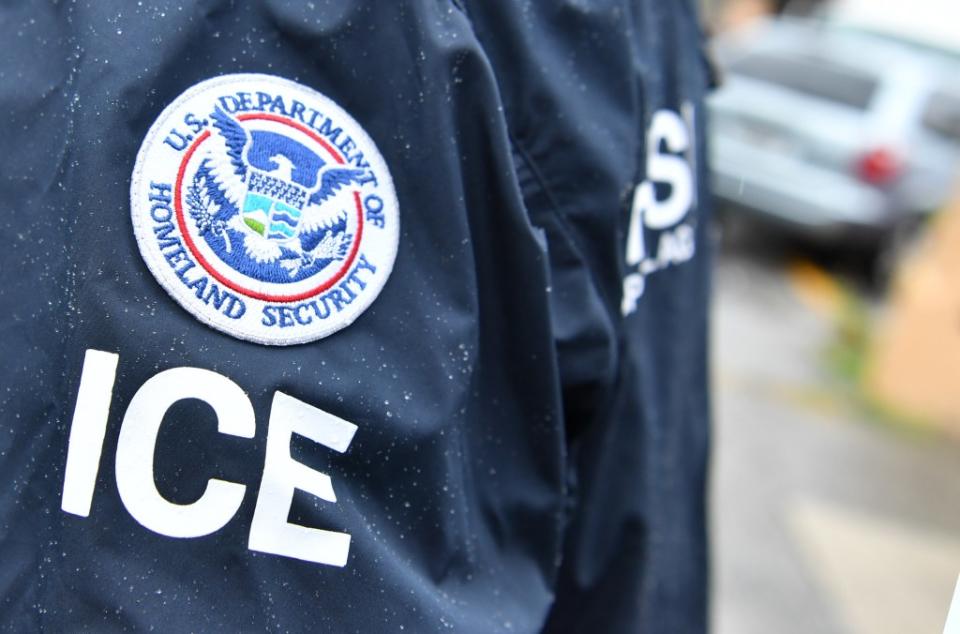NYC’s ‘sanctuary’ laws still a hurdle to deport illegal immigrants charged with crimes, but ICE official sees progress in Adams admin

The Adams administration has been working with US Immigration and Customs Enforcement to work around New York City’s strict sanctuary city laws — which a top ICE official said have been hamstringing the federal agency’s efforts to remove violent criminals.
Ken Genalo, the Brooklyn-born field director for the agency’s New York office, has for months been pushing back against city policies that bar local authorities from cooperating with his 360-person staff.
After years of what he describes as hostile treatment from the administration of former Mayor Bill de Blasio — Genalo said the agency was kicked “away from the table” — he seems to have met a more willing partner in Mayor Eric Adams.


“I’ve been working with the mayor’s office, I have had dialogue with them,” Genalo told The Post in an exclusive interview this week. “I give them kudos — the prior administration under Mr. de Blasio … there was no dialogue at all.
“With Mayor Adams’ office, we’ve had numerous dialogues,” he continued. “At least we’re back at the table and speaking with one another again.”
City Council sources confirmed this, telling The Post on Sunday that the two sides have talked about how to possibly amend city laws that prevent any and all coordination between local and federal law enforcement.
“The law went from, ‘We will welcome undocumented immigrants,’ to ‘We will protect violent criminals’ under de Blasio — as progressive ideology went from compassion for the poor to cuckoo for cocoa puffs,” one council source said.
When asked if he had made progress with city officials, Genalo said he had — but he wouldn’t elaborate on specifics.
“I wish progress would come faster,” he said. “But at least I can say there has been progress.”
Neither the mayor’s office nor city council representatives immediately responded to comment Sunday.
NYC’s sanctuary laws hurt public safety: director
The director’s comments come as some local lawmakers — including Adams himself — have softened to the idea that the city’s sanctuary laws might have to change so migrants accused of crimes can be more easily deported.
In 2014, de Blasio signed a law that largely barred the NYPD from working with federal immigration officials.

He went even further four years later, issuing citywide guidance and NYPD protocols that codified the Big Apple’s policy of not cooperating with the feds’ immigration enforcement activities.
Genalo — a decades-long veteran of ICE who oversees removal operations in New York City, all of Long Island and seven counties in the lower Hudson Valley — said he desperately wants the city to change that by honoring the agency’s detainer requests, which it issues when they ask a local agency that has made an arrest to hold a non-citizen in custody.
The detainers are particularly important with criminal suspects, since ICE can only deport those directly in its custody, he said.
“Until we arrest the individual, we cannot initiate removal proceedings,” Genalo said.
“So when these individuals that you see across New York City that have been arrested … [ICE] wants to take them into custody as soon as possible,” he added.
The NYPD and Department of Correction have been ignoring such detainers for years, at the behest of the city’s elected officials.

This puts ICE at a tremendous disadvantage, Genalo said.
The agency will find out when an undocumented immigrant is arrested — it has its own databases, and it knows when people get collared.
But it’s not a real-time notification, Genalo said.
When the New York courts cut loose a suspected criminal, it forces his officers to start from scratch if they want to track that person down, he said.
“They release them back into the community at large,” Genalo said. “And then once again, my staff has to go and arrest them.
“If we don’t find out right away, we’re already behind the eight-ball,” he said. “A lot of times these individuals, they’ll change addresses, they’re transient, they change names, they might go to different states.”
If local authorities would honor detainers, federal agents could take custody of the suspect in a safe, secure setting, he said.
“All of this could be taken care of, basically, upon the arrest and release from Rikers,” Genalo said, adding that the agency once had a unit based out of the city jail that took “hundreds of people into custody on a daily basis.”
“Now, all those people are released back into the community,” he said. “And, you know, the recidivism rate is high on these individuals.”
Because the sanctuary laws ban all cooperation with ICE, the agency sometimes has to find out about suspects in roundabout ways — like newspaper or TV reports.

“A lot of the time, we’re getting our leads and our intelligence through you guys from the media,” Genalo said.
Once ICE collars a suspect, the agency must — by law — start deportation proceedings, the director added.
“We cannot hold someone in federal immigration custody for the purpose of them being prosecuted on a state or local level,” he said.
But even though ICE won’t hold illegal immigrants ahead of a local trial, it will reach out of the local district attorney and offer to turn the suspect over — as long as local authorities promise to return them to ICE afterward.
“We offer them that ability,” Genalo said. “But if the case is not a high-profile case, or a violent case, the majority of time the DA is going to be like, ‘Go ahead, just proceed with your removal proceedings.’
“They’re not going to want to see the case go to completion because there’s going to be probably a lot of cases misdemeanor charges,” he said.
Adams, for his part, seems to be coming around.
In March, he said his administration was parsing through legal options after the City Council torpedoed his bid to change the Big Apple’s sanctuary policies.
“We’re not going back and forth. I stated my position, they stated their position, and so the legal team is now looking at what are the options we have,” Hizzoner said at the time in an interview with Fox 5’s Good Day New York.

But the City Council seems less receptive to budge — with Council Speaker Adrienne Adams saying in late February that Adam’s suggestion was “harmful” and lawmakers didn’t plan to make any modifications.
“We are not considering changes to laws,” she said bluntly. “These laws have been in effect for decades.”
Despite this, Genalo was adamant that he wants local and federal law enforcement to start sharing information again — and he invoked the specter of 911 as an example of what happens when they don’t.
“I was actually there on 911, and deployed at Ground Zero,” Genalo said. “I never want to see that again.
“And when we have law enforcement agencies not cooperating — I just wish there was something that I can get to change people’s minds to ensure that nothing [like that] ever happens again.”

